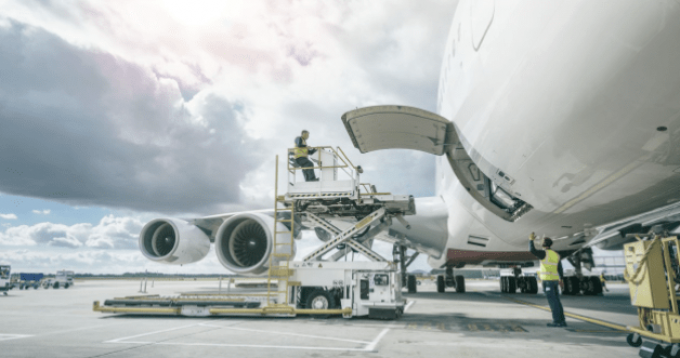Air cargo shifts capacity to where the money is as holiday season begins
Airlines are shifting capacity to Asia Pacific-North America as disruption from China’s forthcoming Golden Week ...
GM: RAISING THE ROOF GGM: IN FULL THROTTLE GZIM: MAERSK BOOST KNIN: READ-ACROSSMAERSK: NOT ENOUGHMAERSK: GUIDANCE UPGRADEZIM: ROLLERCOASTERCAT: HEAVY DUTYMAERSK: CATCHING UP PG: DESTOCKING PATTERNSPG: HEALTH CHECKWTC: THE FALLGXO: DEFENSIVE FWRD: RALLYING ON TAKEOVER TALKODFL: STEADY YIELDVW: NEW MODEL NEEDEDWTC: TAKING PROFIT
GM: RAISING THE ROOF GGM: IN FULL THROTTLE GZIM: MAERSK BOOST KNIN: READ-ACROSSMAERSK: NOT ENOUGHMAERSK: GUIDANCE UPGRADEZIM: ROLLERCOASTERCAT: HEAVY DUTYMAERSK: CATCHING UP PG: DESTOCKING PATTERNSPG: HEALTH CHECKWTC: THE FALLGXO: DEFENSIVE FWRD: RALLYING ON TAKEOVER TALKODFL: STEADY YIELDVW: NEW MODEL NEEDEDWTC: TAKING PROFIT

With India preparing to resume international passenger services this month, air freight shippers and forwarders are looking forward consistent additional bellyhold capacity in a market saddled with high rates and unreliable service.
“The government has decided to resume scheduled commercial international passenger services from 27 March, the start of summer schedule 2022,” said the Indian Ministry of Aviation.
Covid lockdowns shut down scheduled services two years ago, sending the travel industry into chaos, with ‘air bubble arrangements’ becoming the new normal.
With belly space shortages and widespread disruption on the ocean side, the demand for air freight capacity spiked, presenting a strong market for charter services, and some global forwarders beefed up their charter offerings out of India. However, the dysfunction continued.
While air freight players are not overly convinced that things are getting back to the old normal, of sufficient capacity and seamless supply chains, anytime soon, there is a sense of optimism.
“Allowing the airlines to operate commercial services to their capacity is a welcome change and a win-win situation for the industry,” Joy John, the newly appointed director of air and sea freight at Jet Freight Logistics (JFL), told The Loadstar.
“The export-import trade will benefit, with more capacity and choice, which will be a relief for shippers.”
Mumbai-based JFL is moving closer to its stated plan of launching an in-house airline to cement its air freight footprint in India.
According to Mr John, with the extra capacity, Indian shippers can expect some rate corrections, even though rising fuel costs and the Russia-Ukraine conflict are causes for alarm.
“The capacity constraints of air cargo due to flight operating restrictions only resulted in steep air freight rates,” said Mr John. “Last year, cargo demand exceeded pre-Covid (2020) levels by 8%, and this year the demand is expected to exceed pre-crisis (2019) levels by 13%.”
German forwarder DB Schenker, however, believes the capacity challenges in the Indian market persist.
Vivek Chopra, acting CEO of the cluster India and Indian Subcontinent at DB Schenker, told The Loadstar: “Although the operational efficiency of the industry is nearing pre-Covid levels, we are still witnessing a continued dip in the regular capacity.”
He said DB Schenker continued to work on expanding capacity through its twice-a-week scheduled freighter operation connecting the US and the EU from Bengaluru (Bangalore) and Mumbai, respectively.
“The charter services have been performing well, further addressing the supply chain needs of our customers,” Mr Chopra said. According to him, air cargo demand surges around the middle of 2021 had kept the freight rates inflated above average levels.
“[Any real improvement] will take a few months and customers’ willingness to travel, given the new (Covid) cases around the Asia Pacific,” Mr Chopra noted. “In addition, the current geopolitical situation in the Western world poses numerous bottlenecks for airlines, including longer flying time due to routing changes, additional flying time that requires rotational crew or second set of crew, and lastly, carriers are expected to carry extra fuel to meet any exigencies.”
Comment on this article